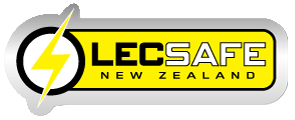Test and Tag / Tag and Test – do you need to do it?
Mon April 4th 2022
We often get asked by prospective customers if testing and tagging is something they HAVE to do. Our answer always tends to be the same and we cover off the following points:
Electrical testing and tagging is referenced in the NZ Electrical (safety) Regulations as a way of maintaining and ensuring electrical equipment is safe to use.
The health and safety at work act is not prescriptive and so does not explicitly tell you that you must carry out testing and tagging (just like it does not set out in writing any other specific risk management activities). The act however does state a requirement to eliminate or minimise risks to health and safety as well as ensuring the provision of a safe workplace and maintained plant and equipment. If you have portable electrical equipment in the workplace then this equipment could become damaged and therefore creates a risk of electric shock or fire that needs to be managed.
Testing and tagging to the AS/NZS standard 3760 is recognised as best practice for managing electrical risks in the workplace as it provides a systemised inspection and testing program aimed to detect and remove dangerous and faulty equipment before it can cause injury or fire
Having a testing program in place not only helps you to manage the potential electrical risks in the workplace but it also gives you information to use in your defence should an accident occur as you will be able to demonstrate the risk management activity being undertaken
The following points should also be considered when establishing a testing program to ensure it is effective and provides you and your business with the protection you require
Make sure you comply with the standard:
Ensure the test and tag program is compliant with the AS/NZS 3760 standard which outlines what needs to be tested, how often items should be tested, the type of tests that need to be carried out and the documentation required. Not being compliant and having items tested correctly with the supporting documentation could be expensive should something go wrong. If there was an accident involving electrical equipment it is likely Workcover would require evidence of what inspection and testing had been carried out on the equipment to ensure it was safe to use.
How often you should test:
Make sure the frequency of testing is correct and considers the type of equipment being used, how it is being used and the environment it is being used in. If you get this wrong, you could either end up with a program that is too expensive due to over testing or potential risks not being managed as the items are not being inspected often enough.
Click here to find out more about our tag and test service and how we provide a hassle free service to our clients.
If you have any questions about testing and tagging in the workplace or would like more information, please feel free to drop us a line. We would be more than happy to come out and review your workplace and what is required and put together a proposal outlining how we would manage your testing program for you.
Book an assessment
Get in touch today to organise a site-visit and quote for your electrical safety programme.
Get started